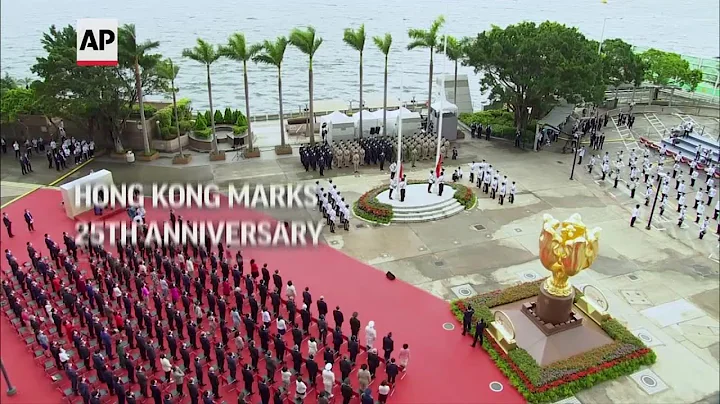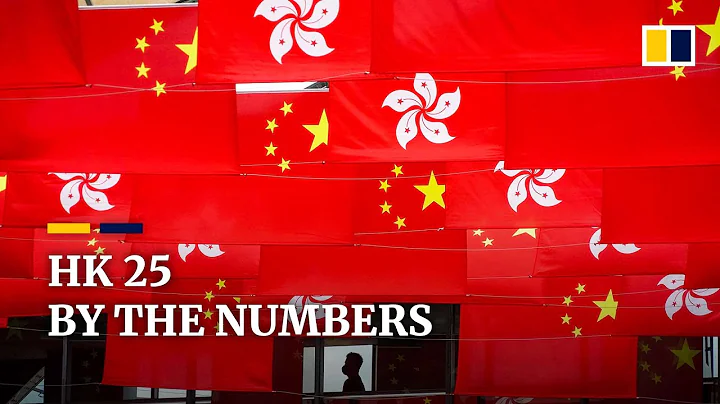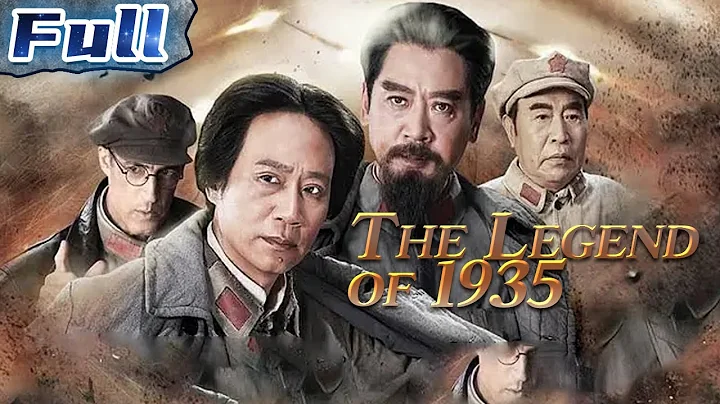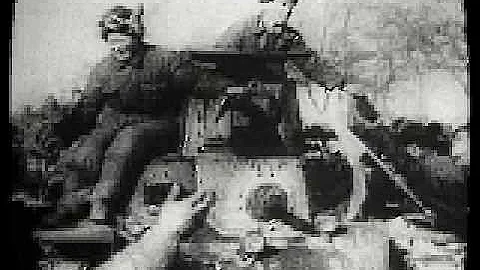
guest name: This year is the 25th anniversary of Hong Kong’s return to . Today I will write an article about the time when Li Huitang first emerged in Nanhua, Hong Kong, mentioning the family background of the football king and some history of being obsessed with football when he was young. In the past, many articles written by outsiders about football king Li Huitang often deviated from historical facts. For example, they described Li Huitang as coming from a poor family and picking grapefruits to play football because he had no money to buy football. These are all illogical and contrary to historical facts. In fact, his father, Li Haoru, was a construction giant employed by Zhang Zhidong . He was patriotic and upright. The Li family was quite famous in Guangdong and Hong Kong. Li Huitang's job had always been as a manager in the financial industry. guest name Jun conducted a lot of research when writing "Meizhou Football History" to set the record straight. Recently, in order to cooperate with the Meizhou Chinese Super League season, guest name Jun launched the [ Chinese Super League season football history] column to let everyone know more, faster and more truly about the history of Meizhou , a famous football city. The wonderful thing about Meizhou is that the football city, teams, stars, matches, stadiums, as well as the football industry, football towns, and entrepreneurs all have a lot of stories to tell! stay tuned! If you need to reprint, please apply for authorization first.
During the Republic of China, the competitive football level of Meizhou, represented by Li Huitang, represented the highest level in China and even Asia at that time, establishing Meizhou's status and role in the history of Chinese football development.

At that time, the Chinese people had a mantra about the football king Li Huitang: "Watching theater should watch Mei Lanfang, and watching football should watch Li Huitang." Luo people's "The Chronicles of the King of Football" recorded this: " At present, we are looking for the king. No one does not recommend Li Huitang first. Even if asks the children, they all unanimously recommend Li Huitang as the most respected player. Li Huitang is famous throughout the world and is known not only to the whole country but also to everyone in the world for his superb golf skills. , and the football quality and morality are also commendable in the football world.
Li Huitang's main locations are Hong Kong and Shanghai. Hong Kong and Shanghai have excellent geographical location, convenient transportation, developed economy, free and open, and are the hubs of Sino-Western cultural exchanges. Opium War. After , the British colonized Hong Kong through unequal treaties. According to the Sino-British Treaty of Nanjing in 1842, Hong Kong and Kowloon were occupied. Shanghai became one of the five trading ports. Modern football originated in the United Kingdom and also followed the British army. The influx of missionaries spread to Hong Kong, Shanghai and other places, which objectively promoted the development of football in Hong Kong and Shanghai.
Around the 1860s, football was introduced to Hong Kong, and Hong Kong became the earliest place for the emergence of modern football in China in the 1880s. In the late 1990s and early 1990s, football was introduced to Shanghai. Hong Kong and Shanghai provided a social atmosphere of modern and advanced football culture for Li Huitang, an outstanding player from Meizhou, and Li Huitang's achievements were praised by the locals. His many interactions with his hometown also promoted the hometown people's attention and love for football.

The early sports activities in Hong Kong were mainly organized and participated by the British in 1851, and other sports clubs were also established. . The British brought the popular local football game to Hong Kong and established the Hong Kong Football Club in 1886. Then held special silver medal events, which were the earliest professional leagues and championships in Asia.
Yucai Primary School and Wang Dongning Primary School in Hong Kong Happy Village. , adjacent to the British football field. Children often see the British playing football, which arouses attention and curiosity. imitates the British playing "wild football" (Guest Name Jun's Note: The Chinese in Hong Kong played football later than the Chinese in Meizhou) . Most of the graduates from these two schools went on to Queen's College, St. Joseph's and Diocesan Schools, which laid the foundation of football in these three schools and cultivated a number of early "football figures", such as Li Huitang, the Southern Football King. From Huang Ren College.
The football king personally told how he was obsessed with football as a child and how he practiced football
Follow the video account "Global Hakka Hall of Fame" and watch the wisdom of celebrities
Li Huitang's father, Li Haoru, comes from Xikeng Township, Wuhua, Jiaying Prefecture, which is famous for its production Granite is famous, and the villagers make stone crushing as a profession. Li Haoru dropped out of school at a young age and left his hometown to work at the "Shixing Hall" of the Nanguan Master Temple in Guangzhou. During the Guangxu and Xuantong years of the late Qing Dynasty, he was hired by Zhang Zhidong, an important minister of the Qing Dynasty and the governor of Liangjiang, to survey the Guangdong-Hankou Railway, an extremely important domestic transportation hub project, and to undertake the construction of the Guangdong-Hankou Railway from Yingde to Germany. Shaoguan section of track. Later, Liansheng Construction Company was established in Guangzhou to deal in construction stones. became a well-known giant. gained fame in Guangzhou and was awarded the title of "Great Man of Stone Industry" by his colleagues in the province.

The former residence of football king Li Huitang (photographed by Zhu Haoru)
In 1892, Li Haoru returned to his hometown and built a large house named "Lianqing Building", which was the "Four Midas" pattern of traditional Hakka architecture. He also equipped the house with the first generator in the village and was the first to use electric lights. In his later years, he advocated afforestation and water conservancy construction in Wuhua Temple, and the villagers gave him a plaque saying "Trees cultivate people".
Li Haoru served as the president of the stone shops in Guangdong and Hong Kong, as well as the director of the Hong Kong Wuhua Association and the Jiaying Association. Li Huitang was born to Li Haoru's third wife, Chen Qiongsheng, and ranked third. The two previous brothers, Guangzhuo and Guangsi, were adopted, so Li Huitang was actually the eldest son. When Li Huitang was born, his cheeks were very small, so he later called himself "Thin-cheeked Saburo". His mother, Chen Qiongsheng, came from a prominent family in Zhongshan County. She worshiped Buddha, was a vegetarian, and was kind-hearted. Li Huitang's family was a traditional Hakka family in the late Qing Dynasty and early Republic of China.

Li Huitang, also known as Guangliang, pen name Lu Wei (the Cantonese homophone of "Lao Hui"), also known as Evergreen, was born on October 16, the 31st year of Guangxu (1905) (the 18th day of the ninth lunar month) At No. 1-2, Tai Hang Estate Polo Grounds, Causeway Bay, Hong Kong. At that time, Dakeng Village was a gathering place for Hakka .
When he was four years old, Li Haoru asked his wife Chen Qiongsheng to take Li Huitang back to Wuhua’s hometown of Xikeng Township to study. Li Haoru was worried that he would be contaminated by the bad habits of Hong Kong society and forget his hometown, so he asked him to return to his hometown to receive education and continue the Hakka spirit.
Li Huitang has lived in Wuhua for three years. Li Huitang went to private school in Wuhua when he was 5 years old. He has read "Three Character Classic", "Thousand Character Essay", "Young School Qionglin", "Four Books", " Classics such as "The Book of Songs " laid the foundation for his later writings. Li Haoru attaches great importance to education and has strict requirements. Li Huitang never plays truant and loves reading. In addition, he is intelligent by nature and has a good memory for learning, which is highly praised by his school teachers. (See the picture of the guest name | What does the image of Confucius that football king Li Huitang worshiped like when he was a child?)

The image of Confucius taken in the Hakka area
Photography: Maisch, Wilhelm Friedrich (Mr)
Li Huitang has been fond of football since he was a child. He caught the ball when he was . When he was attending private school in Wuhua, he actually "packed" (in Hakka dialect, packed in a bag) a small rubber ball to kneel down and worship the statue of Confucius. Li Huitang cannot do without football in the morning and afternoon. On his way home from school, villagers can see Li Huitang playing football while walking.
Follow the video account "Global Hakka Hall of Fame" to see how Meizhou's football boys and champions practiced football back then.
There are two grapefruit trees at the entrance of Lianqing Building. . During the summer and autumn, the grapefruit grows, and Li Huitang Pick it off and play it as a ball. Use the heping in front of the door (the grain drying ground of Hakka Weilong House) as the court and mark it with bricks and stones. Or use the dog hole on the left side of Lianqing Building as the goal to practice shooting, or run and kick on the grass outside the house. .

Wuhua’s grapefruit
When all the grapefruits were picked, they used cloth to tie up a ball and used it as a ball. They practiced like this endlessly.When no one was playing, Li Huitang would take the ball and attack it against the wall, from slow to fast, high or low, with his head or feet, until he could kick it with ease, and he could move left and right. Not lost.
Li Huitang also plays football barefoot with the children in the same village. The other children are from poor families and cannot afford sneakers. Li Huitang does not want to be different and does not wear the sneakers bought at home, so he still plays barefoot. He played football with the kids from the same village almost once a day, and sometimes he was beaten until his skin was bruised and bloody, but he never gave up in the slightest. Among the Wuhua children who played barefoot with Li Huitang, there were several stars. In addition to Li Huitang, there were also Li Tiansheng who participated in the 1936 Olympic Games, and Peng Huaxin and Ou Jiesheng from the South China Sports Association Group A.

Li Huitang and the trophy he won in his twenties
That was the golden age of Chinese football
Some English documents called him the "King of Football"
In 1915, Li Huitang returned to Hong Kong from the countryside of Wuhua. At this time, football had already Popular in Hong Kong Island. Li Huitang recalled that he “often sacrificed dinner to watch football games. Whenever there was a good game, he would squat on the side of the court or climb a tree to observe the tactics of each team and the movements of the stars, so as to imitate the practice. To this day, Yu Chang works tirelessly and is always studying. "
The education level in Meizhou was very developed during the Republic of China, and the level of local Confucian students was very high. Li Haoru hired Li Liuwan, a talented scholar from the Five China Dynasty, to come to Hong Kong to teach ancient classics. Because of his wealthy family, Li Huitang was doted on by his parents since he was a child, which made him weak and sickly. When the autumn wind came, his family put him in cotton-padded clothes, and the neighbor children nicknamed him "Little Pepper". But Li Huitang was born obsessed with football. He did not shy away from his physical weakness and practiced diligently.
A generation of teenagers living in Tai Hang, Hong Kong at that time, used the Tai Hang open space as their natural stadium, but playing football was often opposed by their parents. For example, the fathers of Li Huitang and Yip Beihua both believed that playing football was "promising". When he was young, his parents did not restrict him from playing football. However, when he was ten years old, his father, who wanted him to take over his career, began to restrict him from playing football. As a Hakka who valued culture and education, Li Haoru regretted that he had dropped out of school when he was a child. At first, he strongly opposed Li Huitang's football, thinking that playing football would delay his homework. According to Li Huitang's recollection, Li Haoru had a strong temperament. If the young Li Huitang disobeyed, "when he was angered, he would be whipped to the extreme."

Li Huitang had no choice but to take advantage of every opportunity and insist on practicing, day and night, working hard regardless of sleep or meals. He takes the ball with him to school every day, making the field his "home" in the morning and evening, rain or shine. Li Huitang and his fellow young players such as Li Tiansheng, Ye Beihua, and Feng Jingxiang who practiced together often watched the British team play together and learned the basic skills of passing, controlling the ball, dribbling, shooting, turning, jumping, and short triangular passes. , and are often divided into two teams to play.
Li Huitang gradually mastered the basic skills of football, and excellent kung fu, and soon emerged as the leader of these young men. They also established a "Children's Club" to play small football and established the Dakeng Youth Football Team. You must achieve excellent results in every competition.
Hong Kong is the bridgehead for the development of modern Chinese football and plays an important role in the modern Chinese football cultural circle. Before 1909, football clubs were established by the British Navy, Army and Royal football teams stationed in Hong Kong. In 1886, the British established Asia's first football club, the Hong Kong Football Club, which organized games and formulated game rules. Soon after, the responsibility of formulating game rules was replaced by the Hong Kong Football Association, which was later established. But as a football club, the Hong Kong Football Club is still active in the Hong Kong First Division to this day.

Hong Kong Football Club logo
In 1903, the friendly football match between Hong Kong Queen's College and the Navy Dockyard was the first modern football match in Hong Kong with Chinese participation. In 1904, many English colleges in Hong Kong jointly initiated and held the first academic football match. The participating schools included Wan Chai College, Yucai Bookstore, Queen's College, and Diocesan College.Almost all the people attending this pizza were British or foreign students. Taikoo Mathematics Comprador Mo Zaoquan’s nephew Mo Qing came from Diocesan Academy and was the only Chinese who could appear at the time. He also became the first The first Chinese person to have a recorded appearance in an official football match.
In 1908, Mo Qing, who was only 15 years old, took the lead in establishing the "Chinese Football Team". This was the first football team composed of Chinese people, and it was also the predecessor of the famous "South China Sports Association" in the future. Mo Qing was elected as the president, but he repeatedly declined, and finally Liu Zhubo from Yucai Book Club served as the team's first president. Mo Qing plays an important role in the management and organization of the team and spent his own money to purchase uniforms for the team.

The team emblem of Li Huitang’s parent team, the South China team.
SCAA refers to the South China Athletic Association. Mo Qing, a tall man known as "Mo Lao Qing", led the Chinese football team and gradually made a name for himself in the foreign-dominated football world. In 1910, the Chinese football team was renamed "South China Sports Association" and was invited to represent South China at the first National Games. Mo Qing and his South China Sports Association easily defeated Shanghai's East China team and won the championship.
By 1909, Hong Kong unified and established the Hong Kong Football Association, which was entirely controlled by the British. The president and secretary-general of the association were respectively served by British men Brown and Shi Duli. The Hong Kong Football Association was recognized by all football club organizations in Hong Kong in 1914 and was officially admitted as a member by the Football Association of England. The Federation will follow England's competition system and establish a multi-year hierarchical football league system.

Sun Yat-sen, Fok Ying-tung and Stanley Ho are also alumni of Queen's College
In 1917, 12-year-old Li Huitang was admitted to Queen's College with excellent results. This is the earliest government-run secondary school in Hong Kong. Sun Yat-sen, Fok Ying-tung and Stanley Ho all studied here. . Huangren's school motto is "diligence leads to merit", and Li Huitang studied very diligently. Due to his excellent academic performance, he completed Huangren's four-year course in only two years.

Due to his busy business and the need for help, Li Haoru ordered Li Huitang to drop out of school when he was fifteen to assist in the company's business. However, Li Huitang was always obsessed with football and kept honing his skills day and night after work, despite his father's torture. As his skills became more and more proficient, Li Huitang's body became stronger and stronger.
When Li Huitang was studying at Queen's School in Hong Kong, Chinese football in Hong Kong began to rise. Hong Kong's three schools, Queen's School, St. John's and Diocesan, held a total of 14 inter-school competitions from 1905 to 1923. Among them, Queen's and Diocesan schools The best results.
In 1920, Mo Hing was elected as the executive committee member of the Hong Kong Football Association and officially changed the name of the team to the South China Sports Association. In addition to playing football, he also held the "First Hong Kong Chinese Games" in 1921. Mo Qing was moved by the students' enthusiasm for sports at the sports meeting, so he raised funds to start a free school in the next year to teach sports.
This year, at the "Summer Camp Cup" campus football match held by the South China Sports Association, Li Huitang, a 17-year-old boy from Tai Hang Village, Hong Kong, caught Mo Qing's attention and quickly absorbed him as the first player of the South China Association. level player. Li Huitang was known as the "ball monster" in Hong Kong at the time because of his outstanding skills and powerful footwork.

Li Huitang mentioned his father's teachings on the title page of his book. In 1923, Li Huitang represented China with the Nanhua team in the Sixth Far Eastern Games. His father Li Haoru agreed enthusiastically and encouraged him: "Don't bully the weak and don't be afraid of the strong when playing on the court. If you are timid, how can you make progress? You are not my kind. You should compete with a fearless spirit and with integrity." Mental skills and integrity are the basis of personal integrity."
When they arrived in Japan, the Chinese team played their first game against the Philippines and won 3-0. Then they defeated Japan 5-1 and won the Far Eastern Games football championship, returning home in triumph.When passing through Shanghai, Shanghai United faced off and won 5-1. Li Huitang was a little timid at first, but after seeing the rough movements and arrogant kicks of the Philippine team in these two dramatic matches, he became bolder and showed off his skills and became famous in one battle.
Li Huitang's superb skills and the international record of the Nanhua football team caused a sensation at the time. In the spring of 1923, Henry Minard, representative of the Australian Rugby Union, was ordered to come to China and invite the Chinese rugby team to visit Australia. But he found that the rugby project was not carried out in China at that time, and most Chinese people had never heard of this project.
Miller stayed in Hong Kong for a few days and found that the Chinese football skills could compete with the Australians, so he changed his plan and decided to invite the Chinese football team to visit Australia. At that time, the domestic sports community considered that going overseas would not only train the football team, but also enhance emotional exchanges between the two countries and strengthen trade, so they decided to go to Australia.
This article is written based on the relevant content of "Meizhou Football History", and the pictures are provided by the Meizhou Sports Bureau. Ke Mingjun's other book "Looking for the Hakka" displays the Hakka culture with rich pictures and texts Hakka culture writes about the taste, beauty, wisdom, charm, nobility and homecoming of the Hakka 






















